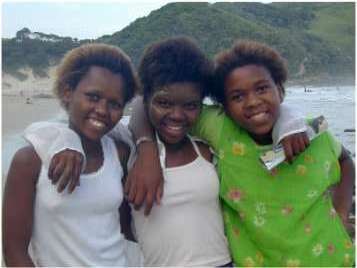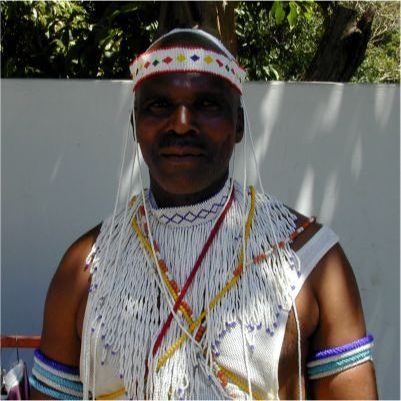The language spoken across the Port St Johns region is isiXhosa with click sounds inherited from the San and Khoi people (Bushmen and Hottentots) who originally occupied the place and made famous by Myriam Makeba’s “Click song”. An example of the click sounds as consonants: The x in Xhosa represents a click like the sound used in English spur a horse on, followed by aspiration (a release of breath represented by the h). Although isiXhosa is spoken by most people, there are some variations in the language between various tribes (e.g. amaPondo). English is spoken in most urban areas and Afrikaans is the home language of quite a few people.
In the rural areas, customs and traditions are relatively well retained. Maize and millet are the most commonly grown crops of family subsistence farmers who also keep cattle, goats and chicken.

The people of the regions are beautiful with features often inherited from the San and Koi people (light skin, almond eyes). The amaPondo people for reason not only esthetic do practice scarification (ukuchaza). Some people have the first phalange of the little finger amputated (ingqithi – another custom inherited from the San). Like elsewhere in Africa people tend to move in group of same age group and sex.
The amaXhosa comprise a diversity of Eastern Cape tribes of Nguni stock who traveled south across the Koi River from KwaZulu-Natal before the 17th century. Although today the amaXhosa are increasingly moving into towns, and adopting a western lifestyle, those who remain on the land cling to their old tribal systems and timeless traditions.

Each rural family lives in a group of huts known as a kraal with a cattle enclosure and a small garden. In every kraal a man lives with his wife and children, together with his married sons and their wives and children. (By tradition, the amaXhosa are polygamous, but today only the wealthy have more than one wife.) Cattle, sheep and goats play an important role in their social life and its rituals. A man counts his wealth in cattle. His daughters are valuable assets, for their bride price is paid in cattle. At one time, on all solemn occasions — birth, initiation, marriage and death — a sacrifice was made to the ancestral spirits, but with the spread of Christianity, such practices are dying out. In the early days, the amaXhosa resisted the encroachment of white settlers, and this led to nine Frontier Wars between the colonists and the Xhosa-speaking people of the Eastern Cape between 1779 and 1878. A major grievance among the settlers was the amaXhosa practice of cattle raiding.
Historical Sites
The ruins of the first Customs House are well hidden up the river. Tours can be arranged to see them and to wander over King’s Ride where Dick King forded the Umzimvubu River on his historic ride, and wonder that his poor horse survived.
Back to Port St Johns Tourism